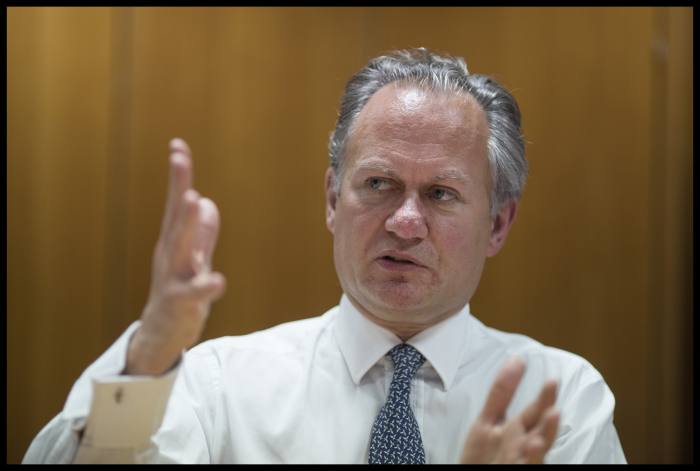
As the UK wakes up to a hung parliament, Richard Buxton, head of UK equities at Old Mutual Global Investors, picks out sterling and Brexit as the areas where the biggest ripples from the shock result will be felt.
He says while the long-term outlook for the UK economy will be largely dictated by the negotiations with Brussels, in the near term the fortunes of sterling will have the greatest bearing on the stock market.
Last night, the pound began its slide as an exit poll suggested the likely result. It fell 2 per cent against the US dollar before paring some of those losses. This decline was less extreme than forecasters had predicted, Mr Buxton notes, reflecting the market’s perception that an extreme form of Brexit is unlikely.
Moves in gilt yields and in equity index futures were similarly modest.
Up to now, weaker UK economic data, as indicated by rising inflation and 1 per cent yields on 10-year gilts, has been a headwind for domestically-focused small and mid-cap stocks, making many of them look relatively cheap.
Conversely, with greater risk aversion among investors in the run-up to the election, the UK stock market leader board has been dominated by ‘defensive’ businesses like British American Tobacco and the publisher, Reed Elsevier.
The backdrop to all this has been one of accelerating global trade, and the big natural resources businesses that dominate the UK’s large-cap index will be the key beneficiaries of this trend, he added.
Mr Buxton remains positive on the prospects for listed housebuilders, as the Help to Buy scheme should survive in an era of anti-austerity.
“Whatever shape of government the now inevitable period of horse trading leads to, it seems clear that austerity-type policies are likely to be voted down. Investor hopes for reductions in the rate of corporation tax will surely be dashed.”
In contrast, things could get tougher for energy suppliers and other utilities, as domestic energy costs and price caps become a source of political wrangling.
Hope for bank stocks will be deferred until interest rates rise towards more normalised, pre-crisis levels.
“With this election now mercifully behind us, and the threat of a cliff-edge ‘no-deal’ Brexit waning, there may just be some cause for optimism that risk appetite will make a return,” says Mr Buxton.
“Although a period of uncertainty will not be welcomed by the market, any further signs of a ‘softer’ Brexit, combined with the tailwind of still-improving global demand, could bode surprisingly well for UK companies.”
Richard Skerritt, managing director of Skerritts, said the election result was “the worst possible result” for the UK, adding “a hung parliament is no good for anyone”.
He noted the stock market has reacted positively but that is largely due to the fall in sterling.
He expects small-caps could benefit if the pound stays low, as well as larger exporters.
He has been low in UK holdings in client portfolios, and has been taking more of a thematic investment approach rather than investing geographically.





